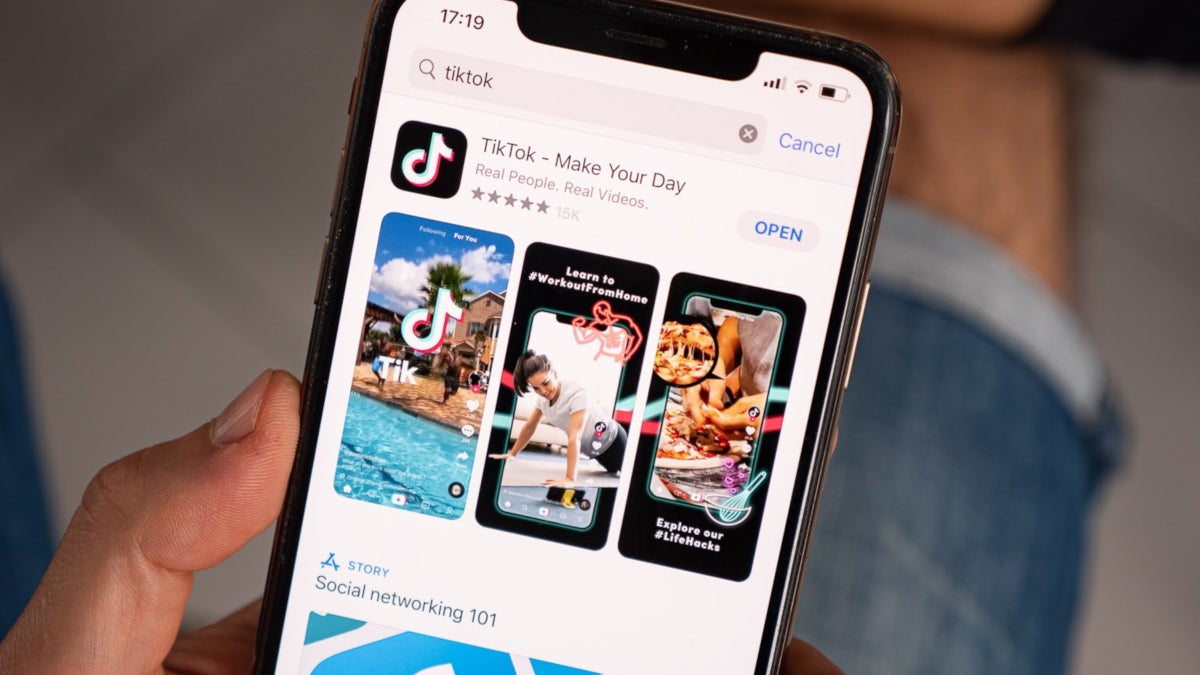Amazon bans TikTok and then says "nevermind"

UPDATE:The Information says that even though Amazon is saying that its email to employees banning TikTok was a mistake, banking firm Wells Fargo has told its employees to remove the app from their phones.
Just a few days ago we told you that Secretary of State Mike Pompeo was talking about banning one of the most popular apps found in the App Store and the Google Play Store, TikTok. The short-form video app took its popularity to a new level when the global pandemic hit; Generation Z'ers used TikTok as a tool to combat the boredom to make lip-syncing videos, videos with hilarious physical pranks, and clips that showed off users' dancing skills. What possibly could be the threat? Pompeo explained what the U.S. government is afraid of when he said that Americans should not install the app unless they want their personal data to fall into "the hands of the Chinese Communist Party."
Amazon bans TikTok from employees' phones and then says that it was a mistake
Like Huawei and ZTE, TikTok is owned by a Chinese company. And once again there are the usual rumors that those using the app are in danger of having their personal data stolen by the app and sent to Beijing. Because the Chinese government can allegedly force companies to spy on its behalf, the U.S. has banned Huawei from its U.S. supply chain and is limiting its access to cutting-edge chips. Yet, there never has been any evidence proving that the manufacturer shares purloined personal data and all of the companies involved have denied this as well. The U.S. is far from being the only country playing hardball with TikTok developer ByteDancer. At the start of this week, TikTok said that it withdraw from stores in Hong Kong and will make the app inoperable to users there in a few days. India has also banned the app.

TikTok remains an extremely popular app in the App Store
The New York Times says today that Amazon employees are being told by email to immediately remove the TikTok app from any devices that can "access Amazon email." The newspaper obtained a copy of the missive which gave Amazon employees until today to remove the app or get blocked from their Amazon email account. The email from Amazon read, "Due to security risks, the TikTok app is no longer permitted on mobile devices that access Amazon email. If you have TikTok on your device, you must remove it by 10-Jul to retain mobile access to Amazon email." Amazon employees are still being allowed to view TikTok from the browser on their laptop. The U.S. military has also banned personnel from using TikTok. The interesting thing is that while TikTok is owned by a Chinese company, it does not operate in China. Furthermore, all of TikTok's servers are in the U.S. and are not subject to Chinese laws.
Amazon has yet to issue a comment on the matter while a TikTok spokesperson said that Amazon "did not communicate to us before sending their email, and we still do not understand their concerns." Amazon is the biggest company to warn its employees about the possible security risk of using TikTok and the latter's spokesperson continued by saying, "We welcome a dialogue so we can address any issues they may have and enable their team to continue participating in our community. We're proud that tens of millions of Americans turn to TikTok for entertainment, inspiration, and connection, including many of the Amazon employees and contractors who have been on the frontlines of this pandemic."
Just as we were putting the finishing touches to this article, Bloomberg reported that Amazon admitted that it had made a mistake. In a statement, Amazon said that "This morning’s email to some of our employees was sent in error. There is no change to our policies right now with regard to TikTok." Just before that message was disseminated by Amazon, TikTok released another statement that said, "User security is of the utmost importance to TikTok – we are fully committed to respecting the privacy of our users."
Follow us on Google News












Things that are NOT allowed:
To help keep our community safe and free from spam, we apply temporary limits to newly created accounts: